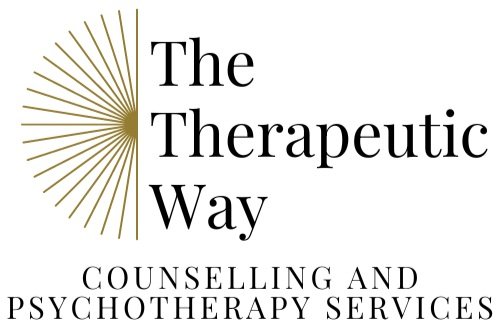
Therapy for Narcissistic Abuse & Relational Trauma in Burlington, Calgary, and Virtually Across Canada
Canada’s leader in Narcissistic Abuse Recovery with trauma-specialized care you can trust.
Narcissistic Abuse Therapy for adult children and spouses of narcissists
WHERE SURVIVORS ARE BELIEVED AND SUPPORTED WITH EXPERTISE.
We are a specialized clinic focused exclusively on narcissistic abuse recovery, relational trauma, relationship support, and attachment wounds.
Our work is grounded in trauma-specialized, somatic-based, and evidence-based approaches designed specifically for the complexities of narcissistic abuse.
Clients come to us when they want more than general therapy, they want clinicians who truly understand narcissistic dynamics.
Our experiences includes more than just therapy. We offer group therapy for narcissistic abuse, workshops, free webinars, speaking events, and teaching for therapists.
THE CYCLE OF CONFUSIONWhy "Thinking" Your Way Out Doesn't Work.
You’re exhausted from the rollercoaster.
The highs feel incredible, but the lows cut deep. Whether it’s a partner or a family member, the cycle of abuse feels the same-just with different faces and behaviours.
But healing doesn’t mean intellectualizing.
After the relationship ends, it’s common to feel lost and confused- questioning yourself, replaying the “good times,” and struggling to remember why you left. You may find yourself asking, “How did I end up here? Why me?”
If you feel like your brain knows you should leave or move on, but your body feels "paralyzed" or "hooked," you aren't weak. You are experiencing a nervous system response.
Nervous System Regulation
Moving from a state of 'Freeze' or 'Flight' back into 'Safe and Social.' We use breath, movement, and sensory awareness to signal safety to your brain.
Breaking the Trauma Bond
De-conditioning the body from the dopamine loops created by the narcissist. We rebuild your baseline of peace so you no longer crave the chaos.
Embodied Boundaries
Boundaries aren't just things you say; they are things you feel. We help you find your "No" in your body so it becomes unshakable.
You’ve lived through the confusion. Now, let’s heal the biology of the trauma. A trauma and somatic approach to recovering from narcissistic abuse.
Some signs that Therapy for Narcissistic Abuse or Relational Abuse is for you:
-
The narcissistic person uses manipulation and control to dominate you. It’s done in the form of gaslighting, guilt-tripping, or emotional blackmail.
Narcissistic person often exploit others for their own gain, whether it’s for attention, admiration, financial support, validation, or pity.
They lack empathy and genuine concern for you and others. Maybe they seem to have empathy, but you can sense something is off or it is not real.
They devalue you. They do it by belittling you, criticizes you, insult your intelligence, and diminish your self-worth and self-esteem.
Narcissists engage in the cycle of idealization (love-bombing) and devaluation.
They isolate you from your friends and family, until you completely rely on them.
When confronted, they blame you or other people, portraying themselves as innocent.
They involve third party into the relationships as a way to isolate you or to create jealousy or competition= triangulation.
In severe cases, narcissistic abuse can escalate to threats, intimidation, or even physical violence.
You find it challenging to escape the relationship due to manipulation, fear of the threats, fear of loneliness, or financial dependency.
You’ve been consistently told that you are the problem
You’ve been lied to, gaslit, or experienced some sort of infidelity (cheating, financial infidelity, betrayal) and now you feel confused and you are doubting yourself
You are afraid of bringing up your need because the other person gets defensive or that’s when they decide to bring up another unrelated issue
It feels like the relationship is like an addiction
You feel on edge, confused, anxious, hopeless and have a hard time setting boundaries
You are going through post-separation abuse or co-parenting with a narcissist
How can our therapists help with narcissistic abuse?
Accepting the reality of this trauma is one of the hardest parts of healing. Our Certified Narcissistic Abuse Treatment Clinician can help you understand and navigate these relationships.
Here’s what the healing process looks like:
✓ Deciding on your next step: staying in the relationship, walking away, or reducing contact
✓ Handling communication, conflict, and setting boundaries.
✓ Learning about narcissistic abuse, breaking the trauma bond and become aware of what is happening
✓ Building a social support and reconnecting with loved ones who are supportive
✓ Deal with ruptures in your healthy relationships and emotional distress
✓ Improving your self-esteem and self-worth, and working through guilt and suppressed anger or emotions
✓ Overcoming unhealthy relationship patterns, i.e. codependency recovery and toxic relationship
✓ Co-parenting with a narcissist and emotional support during legal process and support for post-separation abuse
THE THERAPEUTIC WAY
What to expect in Therapy for Narcissistic Abuse?
Through trauma counselling, somatic therapy, relationship counselling you will learn techniques and ways to regulate your nervous system, regain your identity, understand why this type of relationship feels like an addiction that you just can’t get over.
You will learn about narcissism and how to interact with narcissistic people/ relationships, like the covert and overt narcissists.
We will create a treatment plan together and help you set goals of what you want to achieve, whether you are planning or staying or leaving
You will receive tailored action items and tools for you to implement between sessions to cope and to find emotional relief.
If you plan on leaving, we will help you navigate the stress of the legal system, custody battles, parenting, and more.
Book a free no-obligation 20 mins consultation today with our therapists who specializes in narcissistic abuse recovery in Burlington and Online.
Reduced Cost Therapy
We understand that therapy is an important investment in your well-being, and we want to make quality care accessible.
Our supervised interns offer sessions at $70 per session. Every session is carefully overseen by our licensed therapists, ensuring the same standard of professional guidance and support you expect from The Therapeutic Way. To learn more about affordable therapy, click here.
Limited availability, book a consultation call below.
QUALIFIED, ACCREDITED, REGISTERED PSYCHOTHERAPISTS
Therapy for Narcissistic Abuse at The Therapeutic Way
If you feel alone, confused about your relationship, or helpless, we are your ally. You no longer have to understand this confusion alone.
Because this is a form of abuse, treatments for trauma and PTSD will be used. Some different types of counselling techniques that will be use are IFS, dialectical behavioural therapy, somatic therapy, and trauma-focused cognitive behavioural therapy.
Reach out today to book a session with our licensed therapist specializing in narcissistic abuse.
THE THERAPEUTIC WAY TEAM
Therapists Specializing in Narcissistic Abuse
Anumeet Sandhu
*Accepting New Clients online and in-person
Christian Kleiser
*Accepting New Clients online for low cost therapy
Maria Carreon
*Accepting New Clients online and in-person in Calgary
Nishtha Rathod
*Accepting New Clients online and in-person
Syeda Zaidi
*Accepting New Clients online and in-person
Jillian Fischer
*Accepting New Clients online
Isha Kaur
*Accepting New Clients online for low cost therapy
Vidhi Joshi
*Accepting New Clients online and in-person
Kaitlyn Fox
*Accepting New Clients online
Our offerings:
Individual Therapy
Best for one-on-one support, gaining greater understanding of self, learning skills, and long term support to move from narcissistic abuse to emotional safety.
Couples/Family Therapy
Effective if there is willingness to change among participants (the narcissistic person). Recommended if you’re working through the impact of narcissistic behaviours within a relationship or family system.
Group Therapy
Best for healing together as a community with people who truly understand narcissistic abuse. Group offers connection, validation, and shared healing. Check out our group offerings.
Coaching / Courses/ Retreats
Due to regulations, our psychotherapy services are limited to Canadians. For Canadians and non-Canadians, visit our sister-company: www.thetamarindsoul.com for narcissistic abuse recovery coaching programs.
Free Monthly Webinars
Join our free monthly webinars on narcissistic abuse recovery. Visit page here.
THE THERAPEUTIC WAY
Frequently Asked Questions
-
Missing the narcissistic person is normal. In romantic relationships, at times there were genuine act of love. But that doesn’t mean the abuse wasn’t present or real. Two things can happen at the same time.
It reflects the emotional intensity of the relationship, the intermittent reinforcement, and the hope you held onto for a different outcome. Many survivors also grieve the version of the person they thought they could be. Healing involves understanding this attachment without shame and learning how to soothe the parts of you that feel lonely or confused.
-
Yes. While going no-contact is very helpful, some people can’t go no contact or don’t want to. Such as if it’s a long term relationship, children are involved or a tight knit community.
Our narcissistic abuse therapists can teach you to go low-contact, through techniques such as emotional detachment, boundaries setting, communication plan etc.
-
Healing isn’t linear. Some people months to heal, others takes a few years. For some people it is easier to go no-contact and others ends up going back to the narcissistic person.
Healing depends on the length and type of relationships, the support system you have, nervous system regulation, and whether no-contact is possible (no assets, children, money between you and the person).
With the right support and with our therapists we can help you move towards recovery.
Empower Yourself Today!
We offer a 20 mins free consultation so we can discuss how therapy can help you heal.
narcissistic abuse therapy near me
FAQs
Please reach us at info@thetherapeuticway.ca if you cannot find an answer to your question.
-
Fees
Individual therapy: 50 mins, 75 mins, 90 mins: $150- $180 +HST
Couples therapy: 50 mins, 75 mins, 90 mins: $180- $220 +HST
Family therapy: 50 mins, 75 mins, 90 mins: $180- $220 +HST
Cancellation fee is charged as follows:
Less than 24 hours before the appointment: 100% of session rate
No-show appointment: 100% of session rate
In case of illness or emergency, one time exemption and thereafter we require 24 hours notice
-
Yes, we do.
It is recommended that you reach out to your insurance provider before our session to confirm whether your services are covered by a registered psychotherapist and eligible for reimbursement.
After our session, you will be provided with a receipt that includes all the information required to submit to your insurer for reimbursement. If you have not been reimbursed, remember to keep your receipts to claim for tax deductions as medical expenses on your personal income tax filing.
-
The type of therapy that is best for you, depends on you as a person and the reason you are seeking therapy. There are different types of therapy, such as somatic-based therapy, cognitive behavioural therapy, trauma-informed therapies, holistic therapy, existential therapy, and more. The type of therapy that is right for you will depend what you are looking for. While you may have an input in this, majority of the time the therapist will know what is best suited for you and will let you know.
At The Therapeutic Way, we work with clients using an integrative approach to therapy, meaning using different modalities to suit your needs. We use a trauma-informed, holistic, and relational approach to working with you. Click here to learn more.
-
The difference between psychotherapist, psychologist, and psychiatrist, depends on education and scope of practice.
Psychotherapist, psychologist, and psychiatrist can provide therapy called talk therapy.
A psychotherapist can provide therapy under the College of Registered Psychotherapist of Ontario, a psychologist can provide therapy under the College of Psychologists of Ontario, and a psychiatrist can provide therapy under College of Physicians and Surgeons of Ontario.
Difference:
Psychotherapist Education: Master’s Degree or higher
Psychologist Education: PhD or PsyD.
Psychiatrist: MD
————
Psychotherapist: Can’t diagnose
Psychologist: Can do assessment and diagnose
Psychiatrist: Can do assessment, diagnose, and prescribe medication
————
Psychotherapist Training: Counselling and focus on therapy techniques
Psychologist: Focus on clinical research and assessment
Psychiatrist: Use medical treatment such as prescribing medications for mental health conditions
Before seeking help, it’s important to know what you need and are seeking. A consultation call can help you decide.
At The Therapeutic Way, we are registered psychotherapist with the College of Registered Psychotherapist of Ontario.
-
The term psychotherapy and counselling are often used interchangeably with some slight differences. Psychotherapy refers to the treatment based for psychological disorders and mental health issues, such as depression, anxiety, PTSD, ect. Counselling refers to wellness support and providing insights and clarity which leads to growth or personal betterment.
At The Therapeutic Way, we provide both psychotherapy and counselling.
-
Online therapy is as effective as in person therapy. What is most important with any format of therapy is the strong therapeutic relationship between you and your therapist. Online therapy is a good option when coming in-person is not feasible, when you have dependents at home, and it is also more convenient.
At The Therapeutic Way, we offer online therapy and therapy by phone from the convenience of your home. Click here to learn more about our online therapy.











